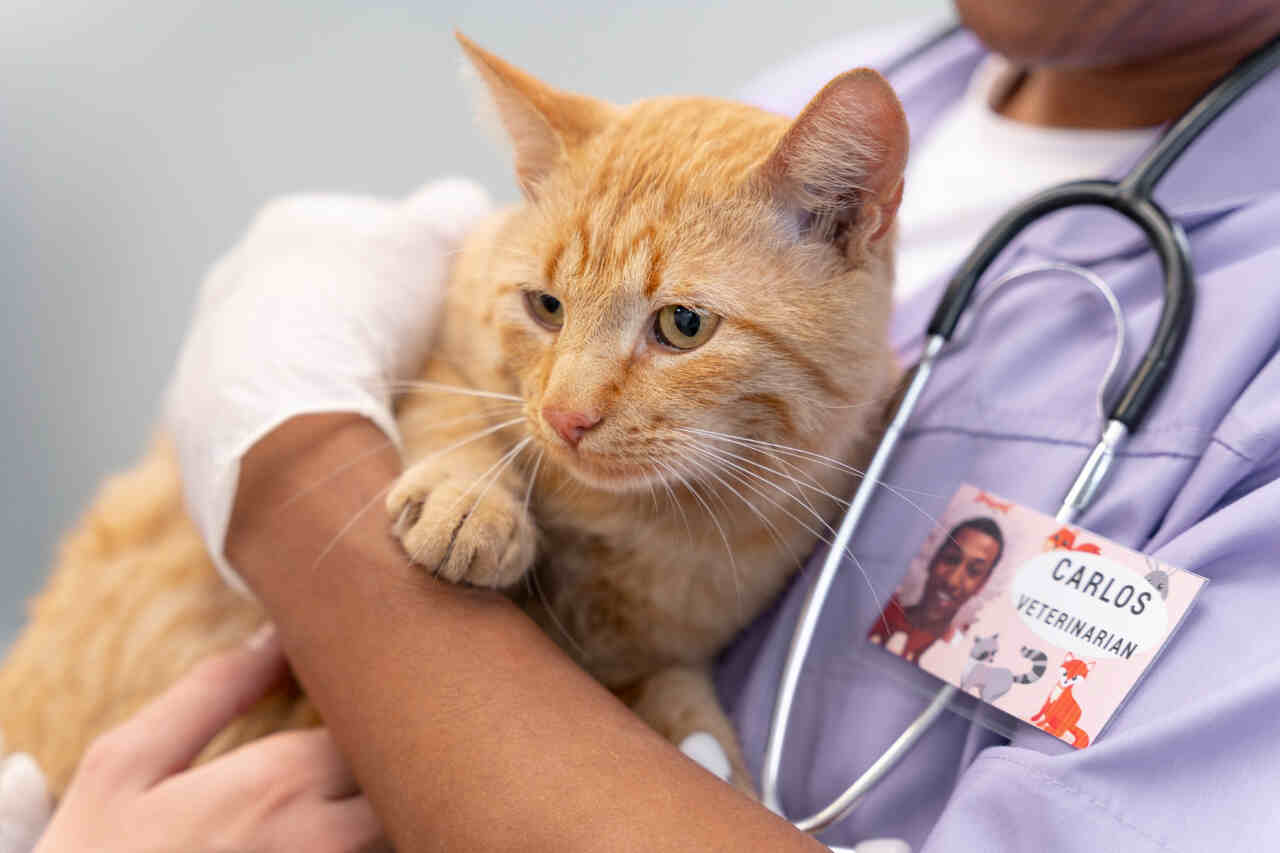
Even though much smaller, a cat’s heart is surprisingly similar to human hearts and performs most of the same functions.
+ Hilarious video: cats go uncontrollably crazy with the arrival of dinner
+ Can cats share a litter box?
Keep reading to discover 11 interesting facts about your cat’s heart and how it compares to ours and to dogs’ hearts, according to the experts at Catster:
1. Heart attacks are very rare in cats
While heart diseases are not uncommon in cats, heart attacks are very rare. When they occur, however, they can be fatal, but cats usually suffer from other types of heart diseases.
2. Cat hearts are almost identical to human and dog hearts
Cat hearts are very similar in shape and function to human hearts. They have four chambers that pump blood coming from all organs and tissues carrying carbon dioxide to the lungs, where it is oxygenated. Then the blood returns to the heart, which pushes it throughout the body to distribute oxygen.
3. Kittens can have heart murmurs
A heart murmur is an unusual noise when listening to the cat’s heart and is commonly caused by abnormal and turbulent blood flow in the heart. Humans can have heart murmurs, just like cats.
Sometimes, heart murmurs also occur in kittens, and these innocent heart murmurs usually disappear by 6 months of age on their own. However, there are other potentially more serious causes, and it’s always best for cats to be examined by a veterinarian.
4. A cat’s heart beats about 100 million times a year
While the human heart beats approximately 70 times per minute, an adult cat’s heart beats about 150 times per minute at rest, although it can reach 220 beats per minute in a healthy cat, depending on activity and stress levels.
This means that an adult cat’s heart can beat more than 80 million times in a single year. If a cat lives to be 15 years old, its heart will have beaten approximately 1.5 billion times!
5. Hypertrophic cardiomyopathy is a common heart disease in felines
Hypertrophic cardiomyopathy, or HCM, is the most common heart disease observed in cats. This occurs when the walls of the heart thicken, and the efficiency of the heart decreases. The condition is more common in certain cat breeds, such as Maine Coons and Ragdolls.
6. Most feline heart medications are human or canine heart medications
Although 15% of cats may suffer from HCM, and although this percentage is even higher in older cats, there are few medications and treatments developed specifically for cats.
In most cases, cats receive medications intended for human or canine use, but, of course, in doses adjusted to the size of the cat and depending on the exact condition.
7. Cardiomyopathy and other heart diseases can be difficult to diagnose in cats
Cats are adaptable animals and very good at hiding signs of illness. In the case of heart disease, unfortunately, the diagnosis is usually established at the time of congestive heart failure, when the cat is having difficulty breathing due to the accumulation of fluid in the chest cavity, also called pleural effusion, or due to the formation of blood clots leading to pain and paralysis.
8. Heart disease can cause paralysis of the hind leg
A common sign of HCM in cats is paralysis of the hind legs. There are other potential causes of this paralysis, however, including spinal injury or fracture.
Paralysis of the hind leg in HCM occurs because blood flow to the limbs is severely restricted. Initially, this will cause severe pain in the affected limbs and may eventually lead to total paralysis, with absent pulses and blue or pale paw pads.
9. A cat’s heart weighs less than 20 grams
A human heart weighs approximately 300 grams. A cat’s heart typically weighs only about 20 grams or less, but certain conditions can make the heart weigh more than that.
10. Severe hypertrophic cardiomyopathy can cause a cat’s heart to weigh 30 grams
Hypertrophic cardiomyopathy is one of the causes of an enlarged and heavy heart. Cats with severe cases of HCM have a heart weight exceeding 30 grams, and the heart can weigh up to 38 grams.
11. Coughing is rarely a sign of heart disease in cats
While heart disease can be very challenging to identify in cats, there are certain signs to watch for. Early signs include loss or alteration of appetite, lethargy, and an increased heart rate.
Some of the more advanced signs include the presence of cardiac arrhythmia or a murmur on auscultation, weakness, difficult and heavy breathing or with an open mouth, and collapse and paralysis of the hind limbs.

